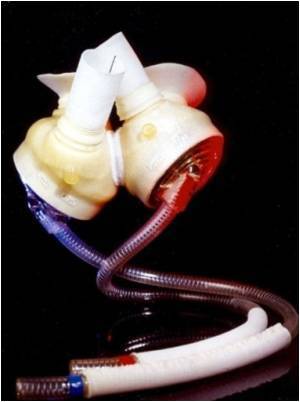Viral infection predicts the failure of a heart transplant, report scientists, although early screening could help in organ survival.

"We show that viral infection of the heart, specifically due to parvovirus B19, is common in pediatric cardiac transplant recipients and is an independent risk factor for graft loss," said Jeffrey A. Towbin, M.D., executive co-director of the Heart Institute at Cincinnati Children's Hospital Medical Center and senior author. "This effect on graft loss seems to be caused by premature development of advanced transplant coronary artery disease."
Based on a retrospective analysis of pediatric heart transplant patient data showing possible benefits, the researchers recommend investigating the merits of rigorously screening transplant patients for viral DNA and RNA to detect infection. The greatest infection risk is in the first year after transplant when immune system suppression is most severe. The research team also suggests using intravenous immunoglobulin therapy (IVIG) as a way to prevent heart graft failure. IVIG is a blood plasma protein therapy designed to boost the immune system and fight infection.
As the prevalence of heart disease and failure increases in the developed world, so does the use of heart transplant as the primary therapy for end-stage disease. Unfortunately, long-term survival rates following heart transplant remain relatively unchanged over the past decade, according to Dr. Towbin and his colleagues. Although the major risk factors for heart graft loss are known, most cannot be addressed medically. Organ loss triggered by viral infection appears to be an exception, the researchers explain.
The study analyzed data from 94 pediatric heart transplant patients ranging in age from less than 1 year to18 years old.
Heart biopsies from the patients were analyzed and screened for viral genes by using polymerase chain reaction (PCR) assays. The assays amplify and detect DNA and RNA sequences that indicate the presence of specific micro-organisms.
Advertisement
The researchers also studied data comparing heart graft survival and the onset of advanced transplant coronary artery disease in 20 virus-positive patients who received IVIG treatment, and in 17 patients who did not. It took longer for patients who received treatment to develop disease and their heart grafts had longer survival times. Three-year graft survival in the IVIG-treated group was 86 percent compared to 33 percent in patients not treated.
Advertisement
Researchers note the study was limited by its retrospective design, the relatively small number of patient events and other factors, highlighting the need for further investigation.
Source-Eurekalert













